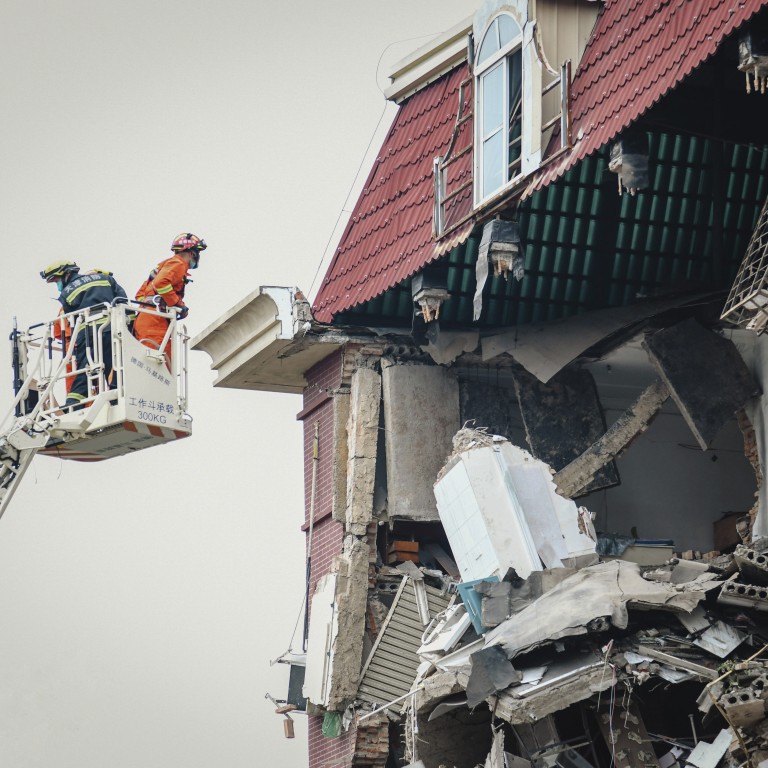
4 dead, 13 injured after Tianjin gas explosion in northern China
- Investigations continue into the cause of a blast in a six-storey residential building on Tuesday morning
- China is replacing decades-old infrastructure, with natural gas lines used for cooking, heat and power generation a particular concern
A trapped person who was pulled out on Tuesday at 5.40pm – more than 10 hours after the morning blast – had weak vital signs and died after being taken to a hospital, according to a Tianjin Daily report posted by the Tianjin government on social media.
State broadcaster CCTV later said the rescue work had been completed. It did not provide any details on the four deaths. The injuries to the other 13 people are not life-threatening, CCTV said in an online article.
The explosion occurred around 7.15am in the city’s Beichen district. Photos of the scene showed upper storeys of the building caved in with the roof still intact, but no obvious damage to neighbouring units.
Tianjin, a major port and manufacturing hub, is less than an hour by high-speed train from Beijing and has long been one of China’s most developed and international cities.
The cause of the explosion remains under investigation, but it appears to point to the deterioration of infrastructure following more than three decades of breakneck economic growth. The building was built in the 1980s, Tianjin Daily reported.
China announces US$44.7 billion for infrastructure projects to boost economy
China’s Ministry of Emergency Management called for determining the cause as quickly as possible and a comprehensive screening to identify gas leak risks and prevent such accidents in the future, Xinhua said.
China is replacing decades-old infrastructure, with natural gas lines used for cooking, heat and power generation a particular concern.

